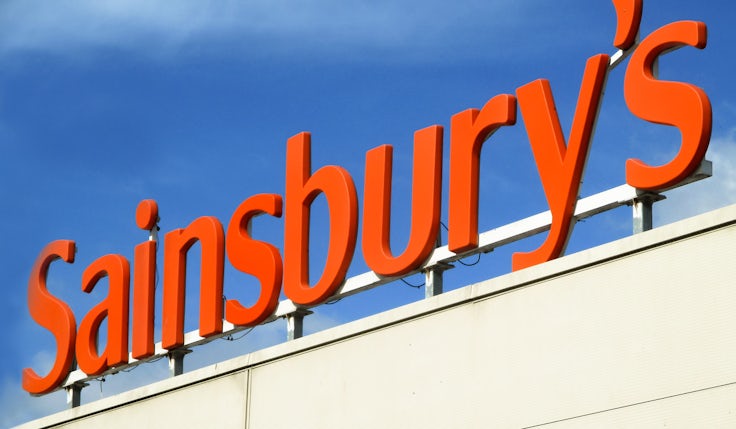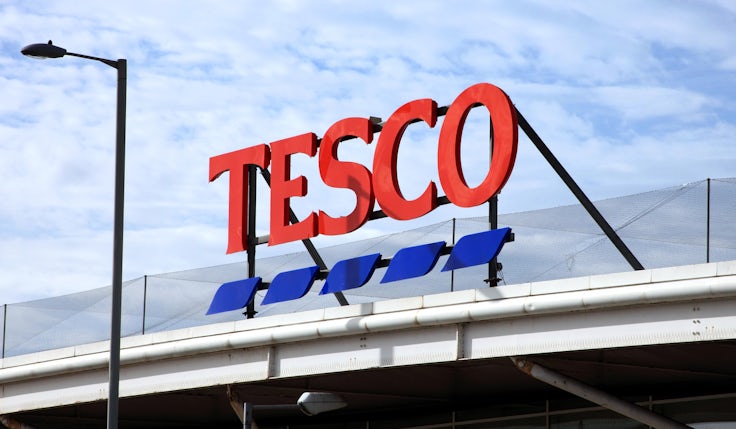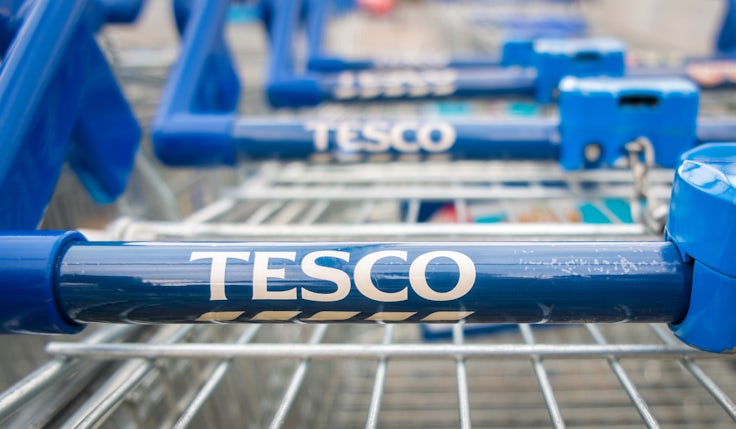Tesco claims its ‘relentless focus’ on value is paying off despite profits halving
Through initiatives such as Clubcard Prices, its price match and everyday low prices schemes, Tesco has “materially eroded” the price difference between itself and the discounters, CEO Ken Murphy claims.
 Tesco boss Ken Murphy believes the supermarket’s “relentless focus on providing value” is helping it stave off competition from the discounters, crediting its Clubcard Prices loyalty initiative, and Aldi Price Match and Low Everyday Prices propositions as helping to drive value perceptions and maintain market share.
Tesco boss Ken Murphy believes the supermarket’s “relentless focus on providing value” is helping it stave off competition from the discounters, crediting its Clubcard Prices loyalty initiative, and Aldi Price Match and Low Everyday Prices propositions as helping to drive value perceptions and maintain market share.
Tesco’s focus on price helped drive sales up 7% to £66bn for its 2022/23 financial year, however pre-tax profit plummeted by 51% to £1bn, with the supermarket putting the drop down to price rises from suppliers.
Its market share has remained relatively unchanged, according to the latest data from Kantar. It’s market share currently stands at 26.9%, down marginally from the 27.4% recorded last year.
Despite profits being down, Murphy described Tesco’s latest results as “strong” during a result call today (13 April).
But while Which? head of consumer rights and food policy Sue Davies said the results suggest Tesco is “doing very well” while many of its customers struggle during the current cost of living crisis. She added: “It’s clear Tesco and all the major supermarkets could be working harder to make food more affordable for customers who need help.”
Responding to these remarks, Murphy pointed to the decreased profit in the last financial year and said the supermarket had “worked very hard” for its customers in the period.
Tesco needs to be able to make capital investments to “maintain the standard of [its] offering”, he said. But he believes the supermarket has “got the balance right” in supporting its employees, suppliers, shareholders and customers.
Taking Clubcard Prices for a ‘proper drive’
As it looks to maintain this loyalty, the supermarket has expressed confidence in its Clubcard Prices proposition as a competitive advantage, despite rival Sainsbury’s announcing a similar scheme earlier this week.
Sainsbury’s Nectar Prices offers loyalty customers discounts on certain products, in a similar way to Tesco’s Clubcard Prices, which first launched last year.
However, Murphy told Marketing Week the supermarket is confident its offer will continue to hit the right notes with consumers given the lessons it has gained since its inception.
We welcome the competition. We think it’s good for the market. We think it’s good for customers.
Ken Murphy, Tesco
“I’d use the simple analogy of a racing car. Owning a racing car is step one. Step two is how you drive it,” he said. “What we’ve accumulated at this stage really is a lot of experience in terms of customer behaviour, what customers are really looking for and how we can drive personalisation.”
“We’re really excited to take it for a proper drive this year,” he added.
Tesco has been “thrilled” with the success of Clubcard Prices, he said, with participation in promotions increasing to 25.5% in February 2023.
‘Intensely competitive environment’
Throughout the cost of living crisis, discounters Aldi and Lidl have been steadily taking share from the traditional ‘big four’ supermarkets. Indeed, last September Aldi replaced Morrisons as the UK’s fourth biggest supermarket by market share.
However, Tesco reported what it called a “solid” market share performance across the year, and said it is the only full-line grocer to grow its market share versus pre-pandemic, with Murphy pointing out the UK supermarket landscape is always an “intensely competitive environment”.
“We welcome the competition. We think it’s good for the market. We think it’s good for customers,” he said.
This competitiveness in the market is likely to continue, he predicted. However, he asserted Tesco has “materially eroded the price differential” between itself and the discounters through its value propositions such as everyday low prices and so would be well-positioned to protect its market share.
‘Many moving parts’: As Aldi and Lidl continue to soar, what next for UK supermarkets?
Tesco is also working closely with its suppliers to drive value for consumers while recognising cost pressures, it said today.
In January, Tesco chair John Allan came under criticism from food suppliers after he implied some brands may be using inflation as an excuse to raise prices higher than is actually necessary. Last year saw the temporary pulling of brands including Heinz and Whiskas from Tesco shelves, after a row between the supermarket and suppliers on price.
In today’s call with media, Murphy said the business was sympathetic to the continuing cost pressures suppliers are under, but said it was not afraid to have “direct conversations” with its suppliers.
“We really look to understand any rationale for price movements or for the lack of price movement,” he said. “What you can rely on is we will be very vigilant and very rigorous, but also very open and fair in our relationships with our suppliers.”







